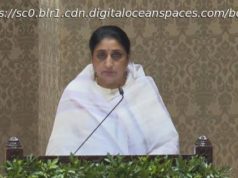 Once upon a time, a charismatic Republican president vowed he would make America great again, and part of his strategy involved being very clear about the nation’s enemies.
Once upon a time, a charismatic Republican president vowed he would make America great again, and part of his strategy involved being very clear about the nation’s enemies.
It was the 1980s. Ronald Reagan famously labeled the Russian-dominated Soviet Union an “ evil empire ,” and Hollywood did its part to help. The 1984 action movie “ Red Dawn ” told the story of a band of heartland guerrillas, the Wolverines, that confronts a Soviet invading force. A year later, in Rock y IV , Rocky Balboa traveled to the Soviet Union and, wearing his stars-and-stripes boxing trunks, somehow managed to knock out the terrifying Ivan Drago.
Today, it is unclear whom, if anyone, Rocky or the plucky Wolverines would fight: The question of whether Russia should be considered a friend or foe seems more unknowable than ever. And that, indeed, is the case with many formerly stable facts of American life as President Trump has ascended to power.
The scrambling of what’s real and what’s illusion began well before Mr. Trump’s counselor Kellyanne Conway offered the concept of “alternative facts” on Sunday when commenting on false statements by Mr. Trump and Sean Spicer, the White House press secretary, and before Mr. Trump’s repeated false claims on Monday that millions of illegal voters cost him a popular vote majority.
Even since before his inauguration, Mr. Trump’s rise has been characterized by an erosion of surety, bizarre and inscrutable subplots worthy of an airport-bookstore spy thriller, by epistemological questions about what is truth and what is fiction like no time in recent American history.
After an election that played out in a blizzard of untruths and questions whether news is real or fake, it can feel like a hall of mirrors inside a hall of mirrors. Now, Americans are trying to make sense of a Republican president reflexively praising Vladimir V. Putin , who, according to American intelligence assessments , had worked to undermine Mr. Trump’s opponent. Mr. Putin, in turn, is saying those who propagated unsubstantiated salacious reports about Mr. Trump’s behavior in Russia were “worse than prostitutes.”
Questions keep multiplying. Was the election influenced by those Russian hackers — or even by the F. B. I. director? What to make of Mr. Trump’s shifting positions and huge promises? Will Congress really strip health insurance from millions of people, many of them Mr. Trump’s voters? Will Mr. Trump really build a wall along the Mexican border and somehow persuade Mexico to pay for it? How to explain a “populist” upheaval that installed a team of multimillionaires and billionaires at the heart of government? And what is the new government even proposing? Will policy be set by the president’s words and Twitter posts or the congressional testimony of many of his appointees who often take the opposite position he does on significant issues?
Some of the old battle lines once drawn between parties and factions now seem hopelessly scrambled, in part because Mr. Trump scrambled them. Imagine how upside down 2017 would seem to a time-traveling Reaganite from 1982: The American left frets that a Republican president-elect might be too soft on Russia. The Republican Party embraces, or at least seriously flirts with, protectionism over global free trade.
At presidential altitude, the gold standard for political rhetoric used to be something like Lincoln’s first inaugural address , with its carefully calibrated prose-poetry. Now the very notion of “presidential” language and behavior has come in for a makeover. Before the inauguration, Mr. Trump unleashed Twitter barrages against a Hollywood actress, the United States intelligence community, a prominent civil rights leader and some news media outlets. His critics fear that the style, improvised and inflammatory, might create substantive havoc, particularly in the realm of foreign policy, where the smallest gradations of adjective or adverb can affect real lives.
But an upending of the status quo is exactly what many of Mr. Trump’s supporters crave. On Friday, they flocked to Washington for his inauguration, giddy with the hope that Mr. Trump would continue to deploy his outsider style — what his friend, the author Conrad Black, has described as “an Archie Bunker talent at blunt, earthy, and amusing reductionism” — to purge government of curdled ideas and clotted bureaucracies.
Their movement combines America’s revolutionary and nostalgic impulses, with twin promises of radical disruption and a return to a surer, stronger past to which Mr. Trump’s red baseball caps have alluded.
But first, the change, and a headlong hurtle into the unknown. Mr. Trump “was elected as a disrupter,” Walter Russell Mead, the centrist academic at Bard College wrote recently on the website of The American Interest, “and disruption is what a Trump administration will bring.”






